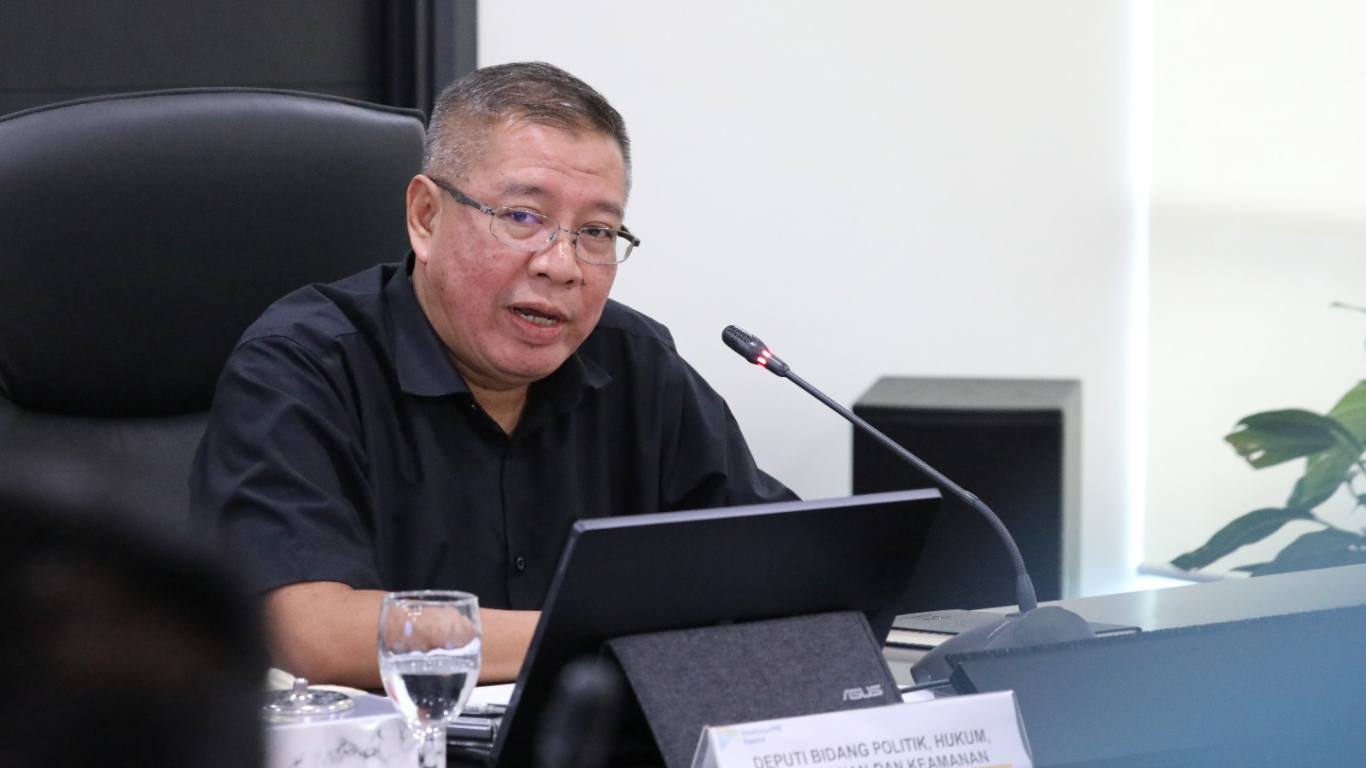Bappenas Supports KPK in Continuing Efforts Against Corruption
Development News - Wed, 03 April 2024

JAKARTA – The Ministry of National Development Planning/Bappenas’ Deputy of Political, Legal, Defense, and Security Affairs Bogat Widyatmoko stated that in the Preliminary Draft of the 2025-2045 National Long-Term Development Plan (RPJPN), developing a stronger anti-corruption system is one of Indonesia's top development priorities.
"The Ministry of National Development Planning/Bappenas supports the prevention of corruption through the Corruption Eradication Commission (KPK)," Deputy Bogat expressed on Wednesday (3/4).
The anti-corruption system is encompassed within the RPJPN’s Governance Transformation and the Legal Supremacy, Stability, and Leadership agendas. This indicates the Indonesian government's commitment to strengthening anti-corruption infrastructure to achieve better governance and enhance legal supremacy.
In the Technocratic Draft of the 2025-2029 National Medium-Term Development Plan (RPJMN), the anti-corruption system is based on four strategic pillars. First, the anti-corruption culture aims to instil awareness of the importance of integrity and honesty at all levels of society. Second, corruption prevention is carried out through increased transparency, accountability, and oversight of government and business processes. Third, corruption enforcement emphasizes fair and firm law enforcement against corrupt individuals. Finally, asset recovery is carried out to return state assets seized due to corruption.
"The Ministry of National Development Planning/Bappenas is committed to planning and implementing the strengthening of anti-corruption systems and institutions, including the KPK. This includes efforts to enhance the capacity, transparency, and accountability of relevant institutions, as well as strengthening cooperation between the government, private sector, and civil society in jointly realizing a clean and integrity-filled Indonesia," Deputy Bogat added.
Regarding corruption prevention, in 2020, the Ministry of National Development Planning/Bappenas, together with several ministries/agencies, issued the National Corruption Prevention Strategy, which includes various programs, including increased oversight of public institutions, strengthening oversight and law enforcement institutions, public awareness campaigns, ethics education, and anti-corruption policy formulation. "With strong synergy and cooperation, we can create an environment that does more to tackle corrupt practices and build a better future for the nation and the country. Thus, the Ministry of National Development Planning/Bappenas has never issued statements regarding merging with the Ombudsman, nor the abolition of enforcement fields in the KPK," Deputy Bogat concluded.
